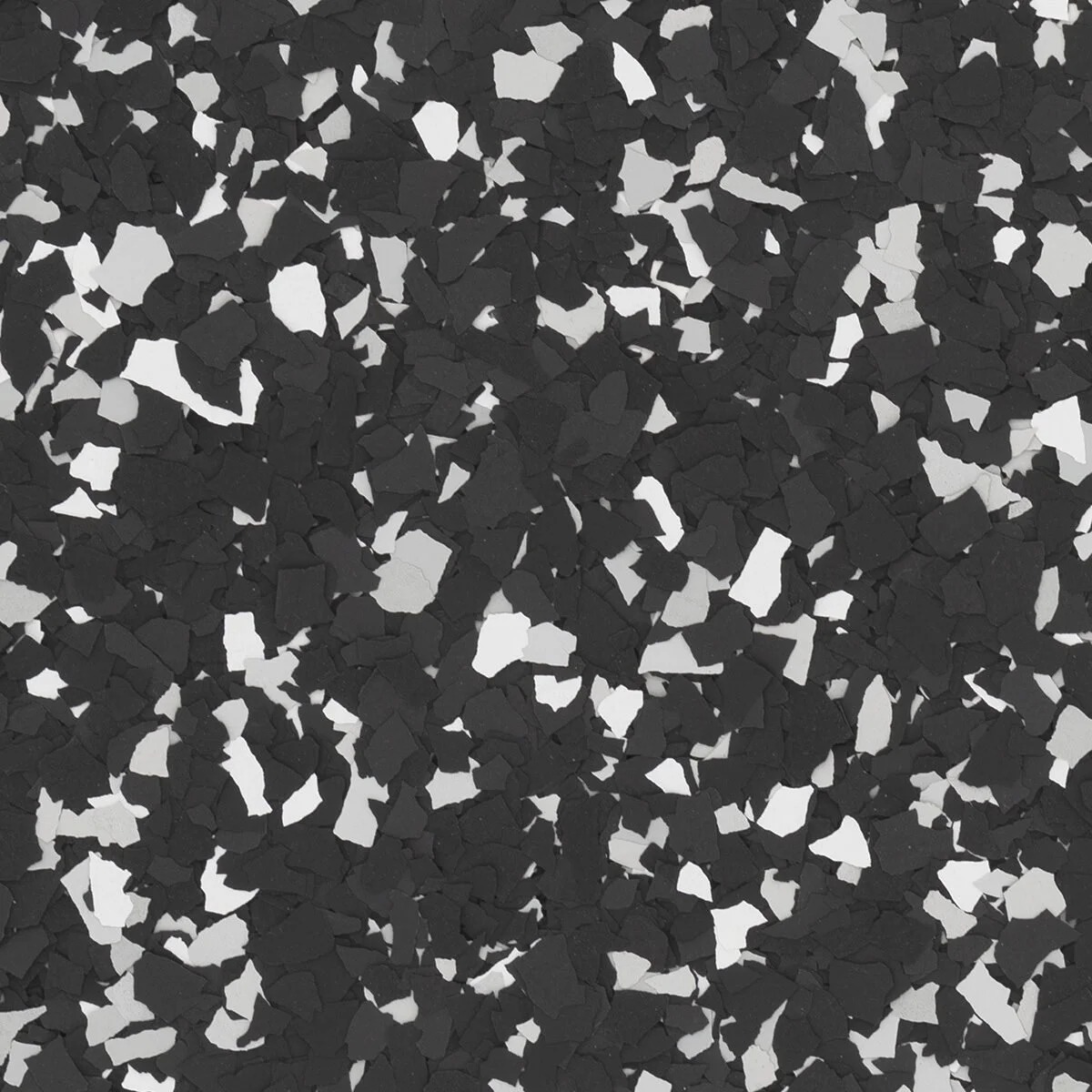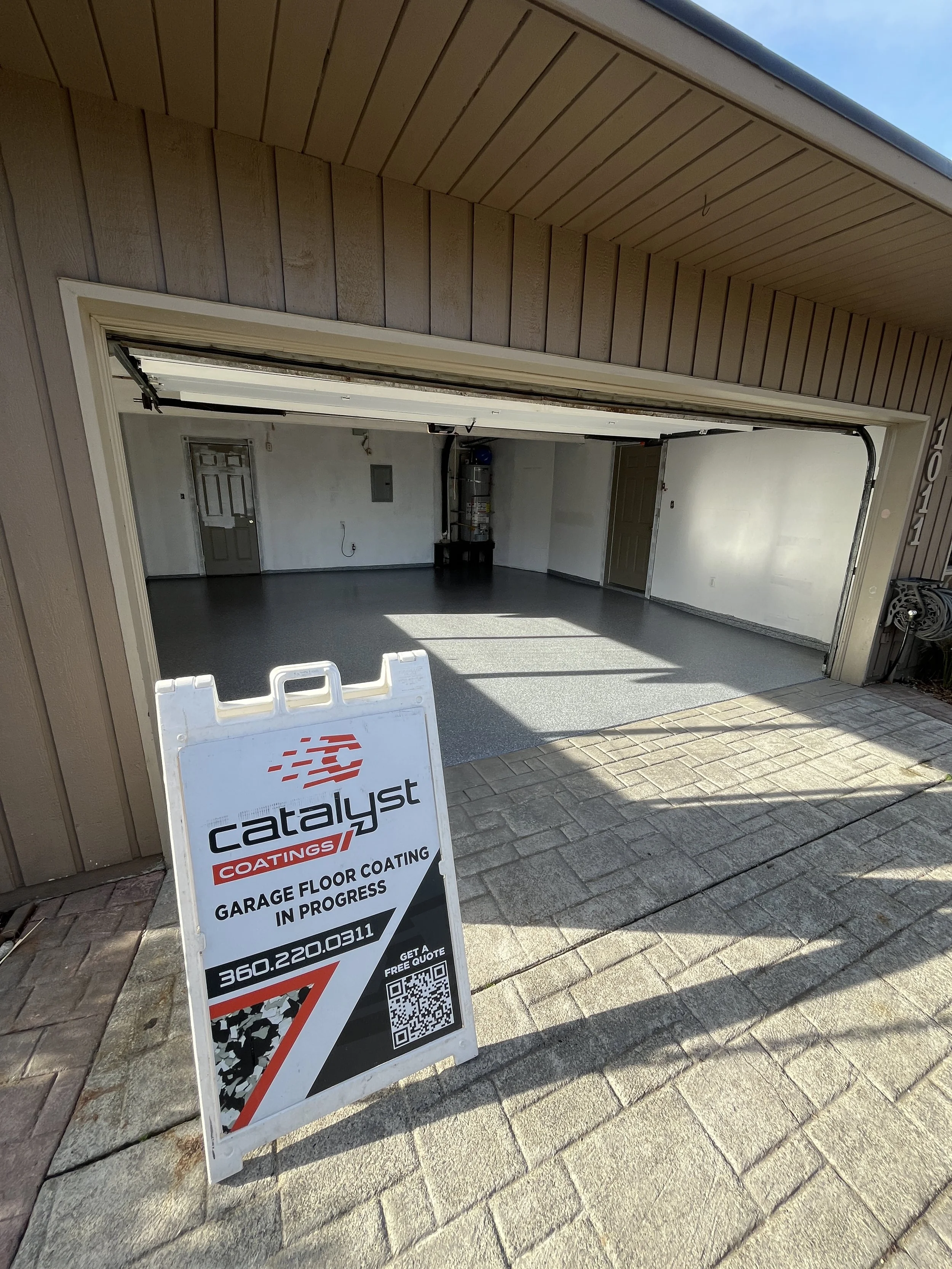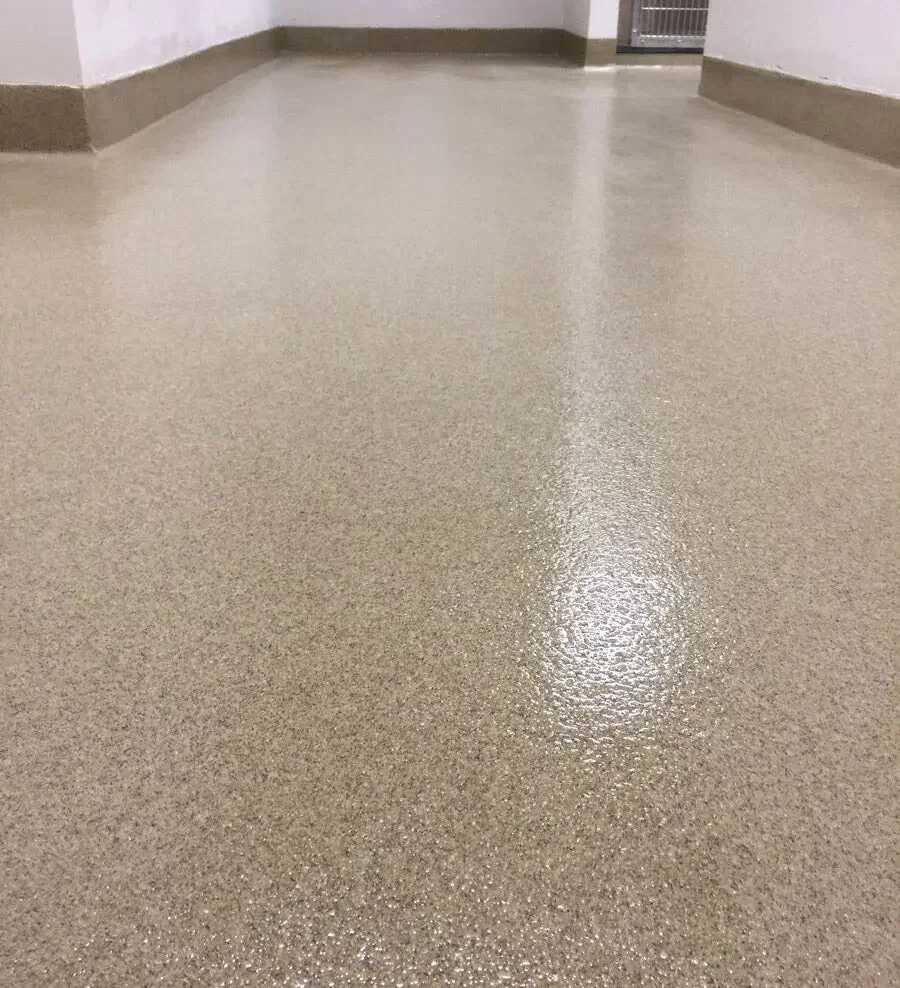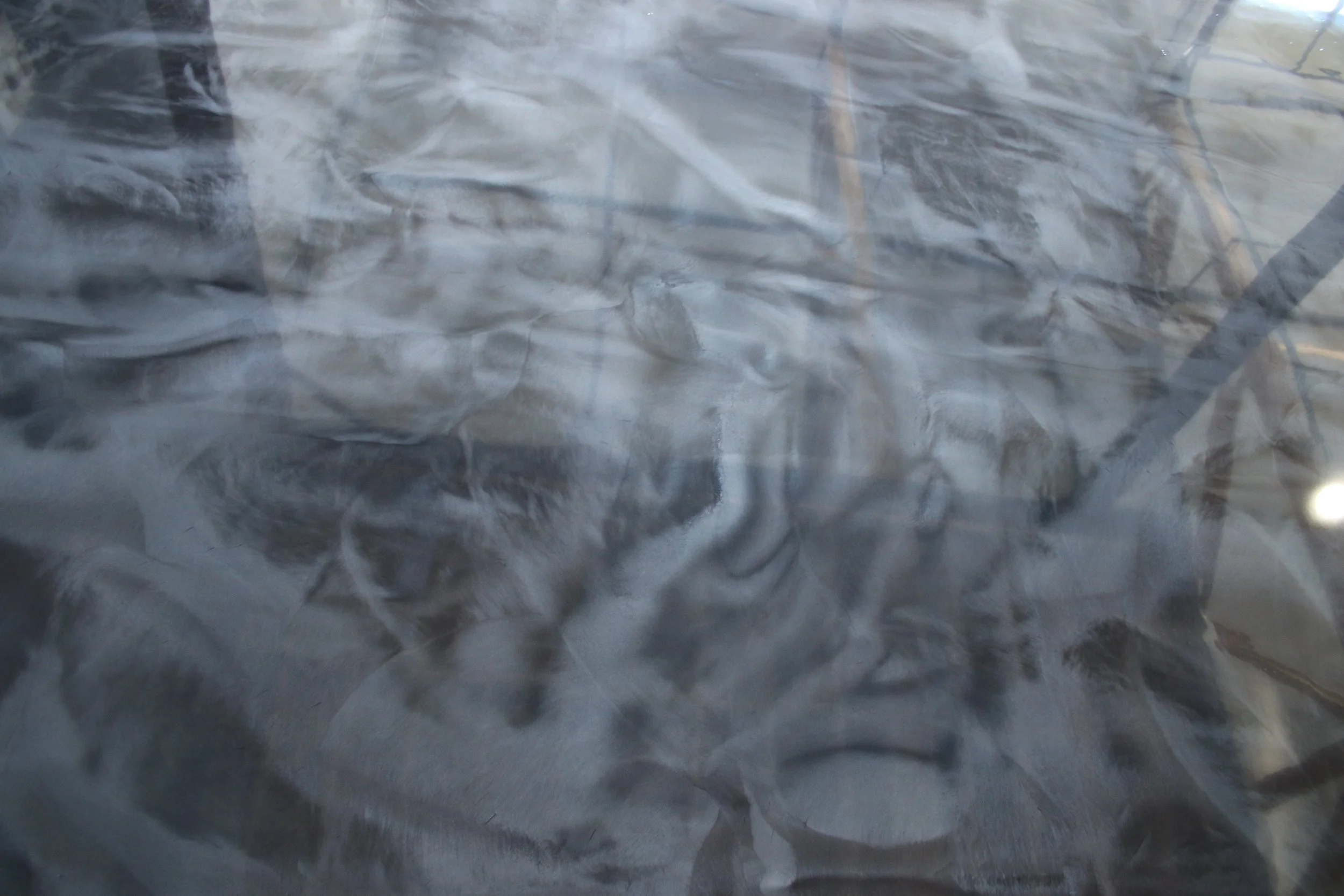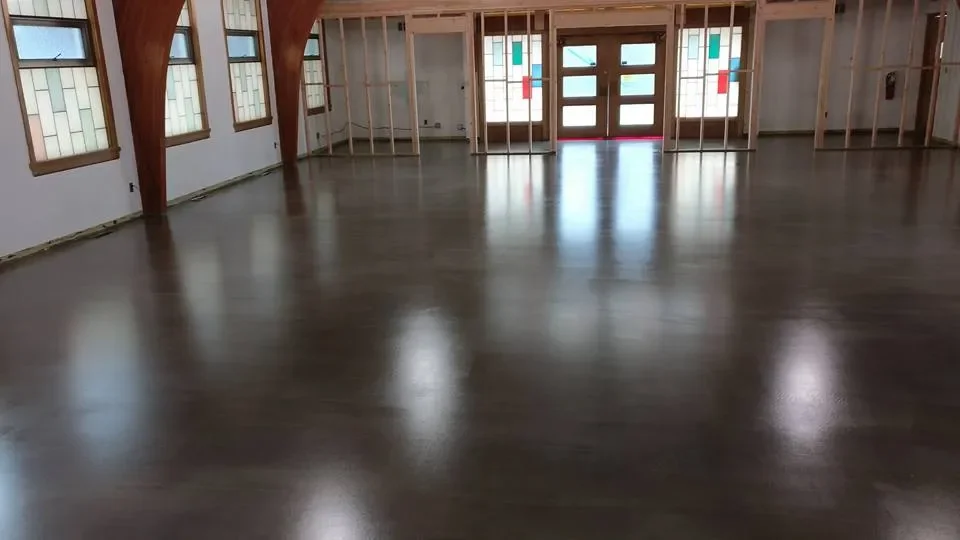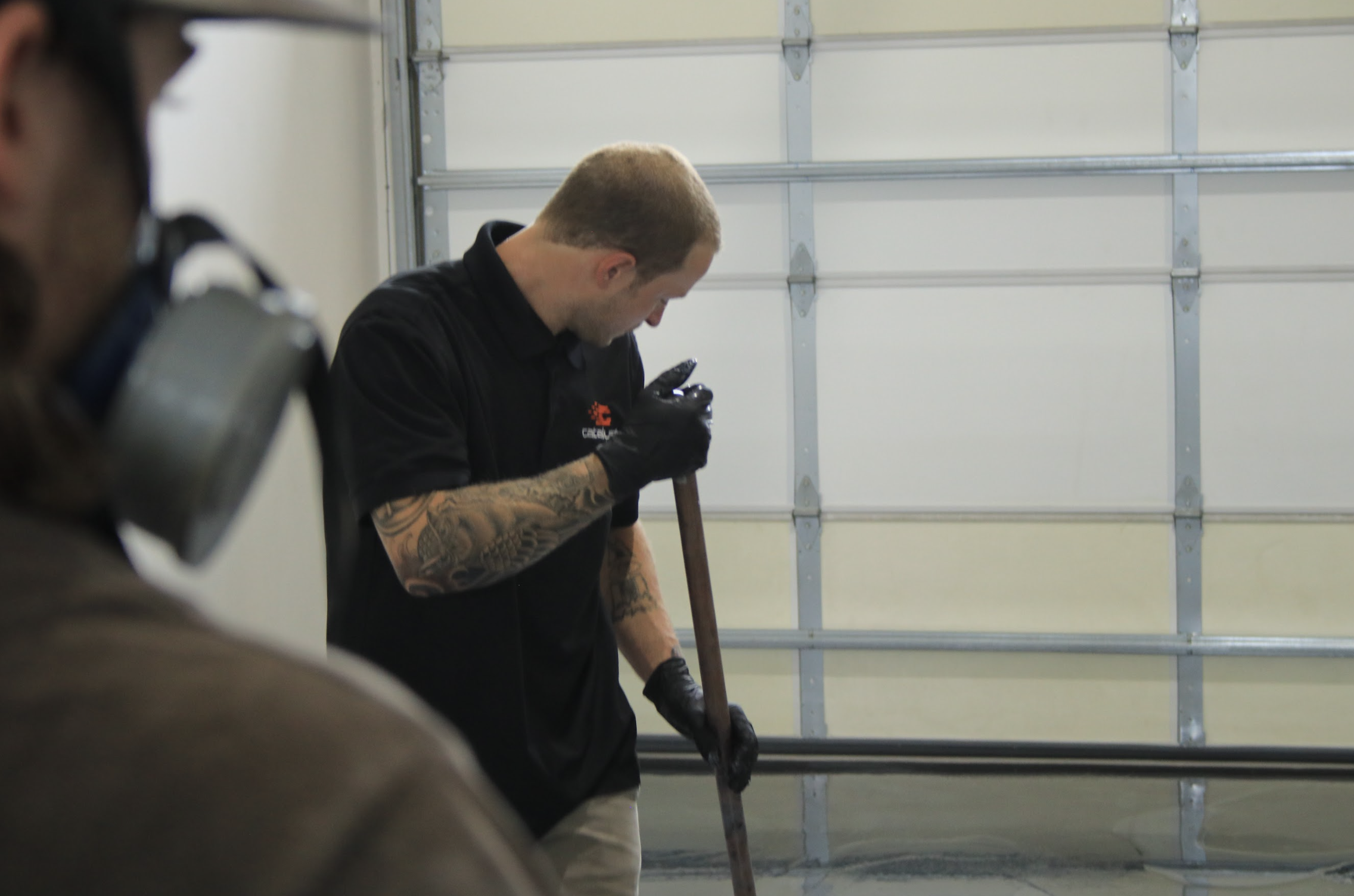
Frequently Asked Questions
General Floor Coating FAQs
-
Yes, all of our systems are built to withstand heavy use, with varying levels of resistance to abrasion, chemicals, and impact depending on the system chosen.
-
Absolutely. Most systems offer a range of standard and custom colors, as well as options for gloss, texture, and additives for slip resistance.
-
Yes. All of our coatings can be installed seamlessly, are non-porous, and easy to clean using standard non-abrasive cleaning products. (Note: Heavy texture coatings designed for traction will not be easy to clean by design)
-
Lifespan depends on system selection, usage, and environment. Most systems last 5–15+ years with proper maintenance. Comprehensive warranties are offered for varying amounts of time depending on the system selected.
-
Most residential jobs are completed in 1–2 days, while larger commercial or industrial projects may take longer depending on size, system, and substrate condition.
-
Yes, we repair and prep the surface to ensure proper adhesion and a smooth finish. Some systems, like urethane mortar coatings, are ideal for resurfacing damaged slabs.
-
Yes, Floor coatings can also be applied to wood, metal, terrazzo, vinyl or tile, and existing epoxy or resinous floors. Current substrate condition, proper cleaning, drying, and profiling of the surface are essential for a successful application and it’s important to verify compatibility with the chosen coating system.
-
Flake coatings are installed by a broadcast of colored vinyl flakes into a resinous base like epoxy, then sealed with a clear topcoat.
-
Yes, with a UV-stable topcoat, flake coatings perform well in patios, walkways, and other exterior areas.
-
Perfect for garages, basements, workshops, and light commercial areas due to their slip-resistant texture and visual appeal.
Flake Floor Coatings FAQs
Quartz Floor Coatings FAQs
-
Quartz coatings use mineral quartz granules for a finer, more industrial texture and enhanced durability.
-
Yes, they’re ideal for kitchens, locker rooms, pool decks, and other demanding environments.
-
Quartz systems offer a clean, uniform finish with excellent traction and performance.
Metallic Floor Coatings FAQs
-
The visual effect comes from metallic pigments suspended in clear epoxy, creating a 3D marbled or flowing appearance.
-
Yes—this system is highly customizable and often used to create one-of-a-kind artistic finishes. Each Metallic Coating System comes with a free design consultation, and sample board created unique to your project.
-
Ideal for showrooms, retail spaces, salons, basements, and anywhere aesthetics are a priority.
Industrial Mortar Coatings FAQs
-
Industrial mortar coatings are a mixture of resin like epoxy, and fibrous aggregates similar to cement, to create a thick, reinforced material that has slight elongation characteristics, while maintaining superior adhesion and strength.
-
Manufacturing plants, commercial kitchens, mechanical rooms, and heavy-duty industrial spaces.
-
They’re seamless, highly chemical- and impact-resistant, and perfect for resurfacing rough or damaged concrete. By coating industrial areas, you can save on cleaning time, maintain a cleaner space, and see spills and contamination easily.
Solid Color Floor Coatings FAQs
-
These use pigmented epoxy, urethane, or polyaspartic resins applied in a uniform color.
-
Garages, utility rooms, light commercial spaces, and areas where function and clean aesthetics matter.
Grind and Seal Floor Coatings FAQs
-
This process involves grinding the concrete to expose aggregate or smooth imperfections, then sealing it with a clear or tinted topcoat.
-
Grind and seal uses a topical sealer, while polished concrete is densified and burnished to create a natural shine.
-
You can choose from matte to gloss finishes, add color stains, and control aggregate exposure for a custom look.
